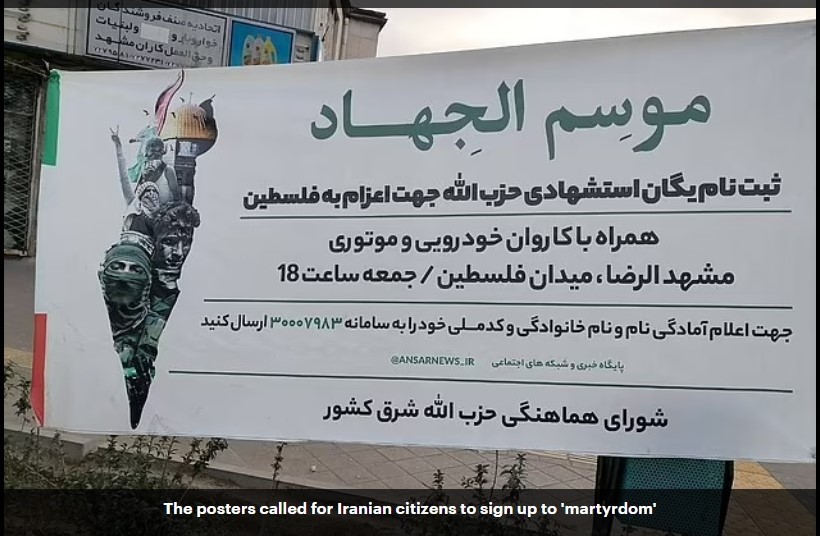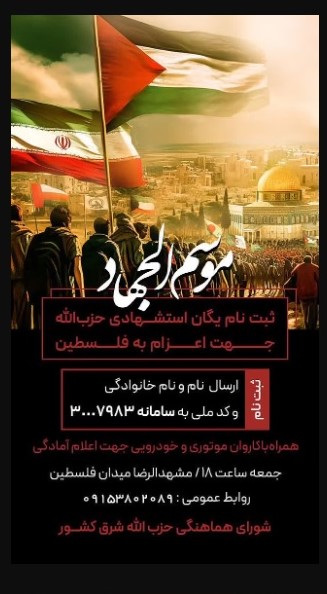EXCLUSIVE: Iranian group puts up recruitment posters for suicide bombers willing to attack targets in Israel
They are not getting many takers according to local people. Despite the offer of a choice between a motorbike or a car with which to conduct the mission.
A hard-line Iranian group has been actively recruiting potential suicide bombers for operations in Israel, images seen by MailOnline reveal.
The group responsible for this recruitment drive, Hezbollah, different from the Lebanese militant group with the same name, has initiated a campaign in the southeastern Iranian city of Mashhad, a significant place in Shia Islam.
Posters featuring calls for ‘martyrdom’ have appeared on the streets of Mashhad, imploring residents to submit their personal details for consideration.

These posters declare, ‘It’s time for Jihad,’ and seek individuals to join a ‘special battalion of martyr seekers for Palestine.’
 One poster, shared by a Telegram channel close to the group, shows triumphant jihadists arriving at Jerusalem‘s Al-Aqsa Mosque, one of Islam’s holiest sites after the defeat of Israel while waving Iran‘s flag.
One poster, shared by a Telegram channel close to the group, shows triumphant jihadists arriving at Jerusalem‘s Al-Aqsa Mosque, one of Islam’s holiest sites after the defeat of Israel while waving Iran‘s flag.
‘Liberating’ Al-Aqsa Mosque has been one of the fundamental slogans of the Islamic Republic’s officials over the past four decades.
The group has gone as far as providing potential recruits with the option to choose between using motorcycles or cars for their deployments to Israel.
While openly admitting its backing for Hamas, Iran’s clerical rulers insist the Islamic Republic was not involved in the group’s 7 October attack on Israel.
The Islamic Republic has historically supported various organisations in the Middle East, such as Hamas and the Palestinian Islamic Jihad, which are engaged in activities related to the Israeli-Palestinian conflict…While some countries like Qatar and Turkey have offered financial aid to these groups, they typically do not provide them with arms or endorse their activities.
Hamas and Islamic Jihad, both Sunni groups related to the Muslim Brotherhood, receive support from Iran due to their shared anti-Israel sentiments, despite their sectarian differences. The relationship between Shia and Sunni Islamist groups has been marked by periods of cooperation and occasional conflicts, particularly in the aftermath of the 2003 Iraq war and the unrest in various Arab countries in 2011.